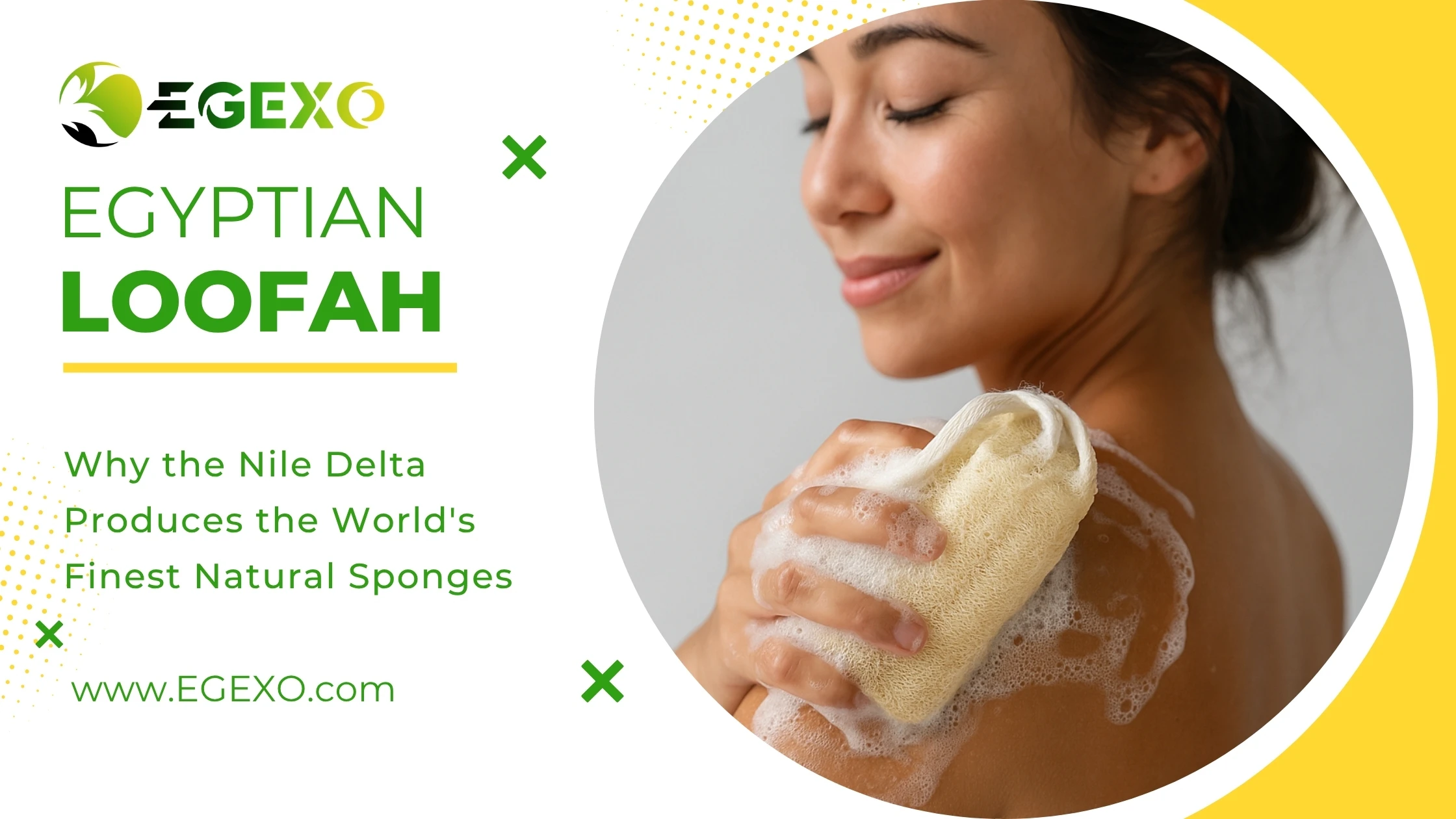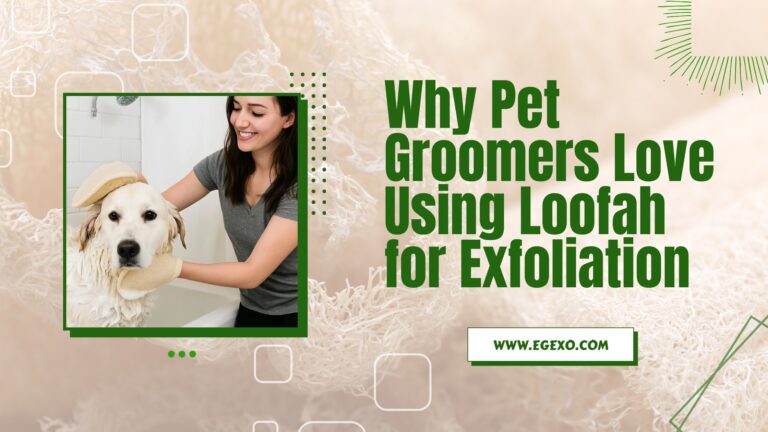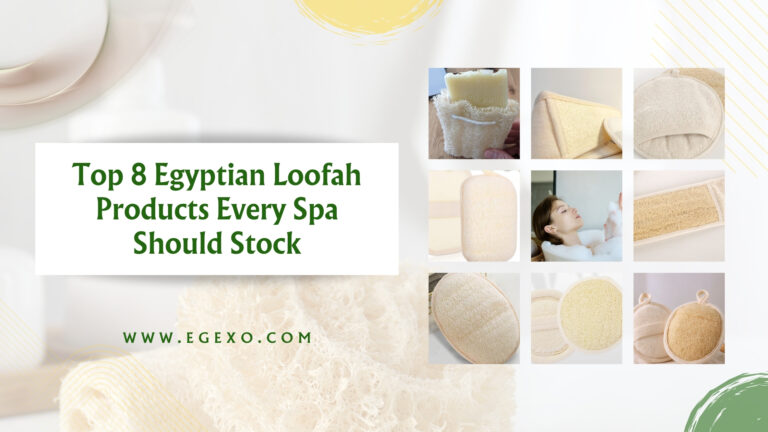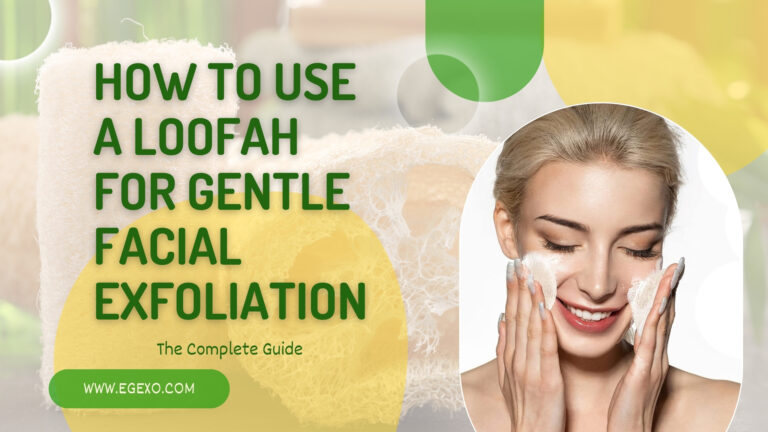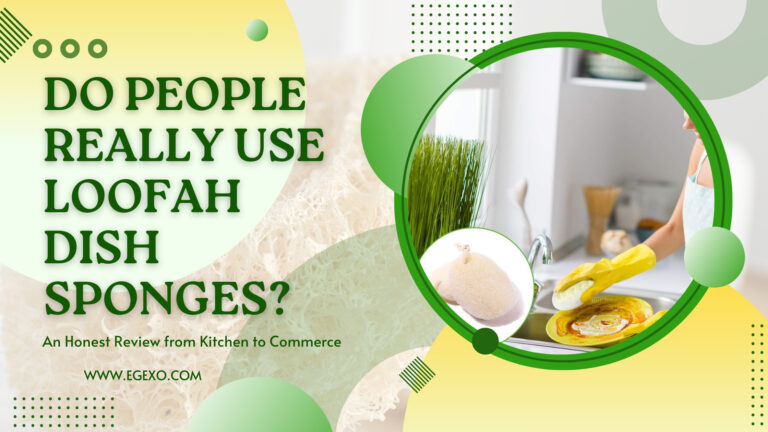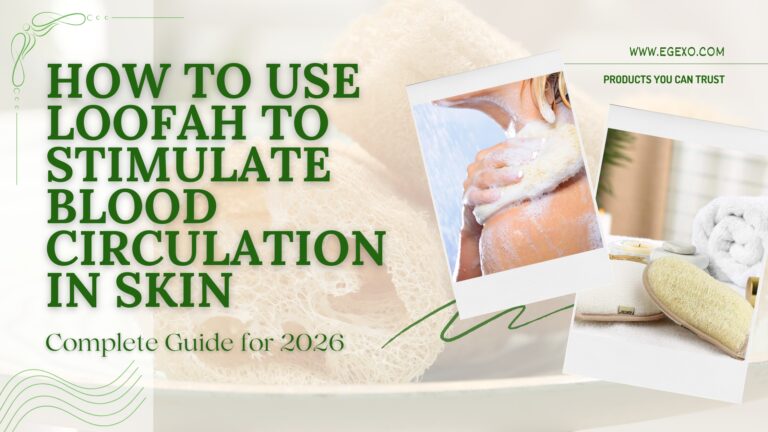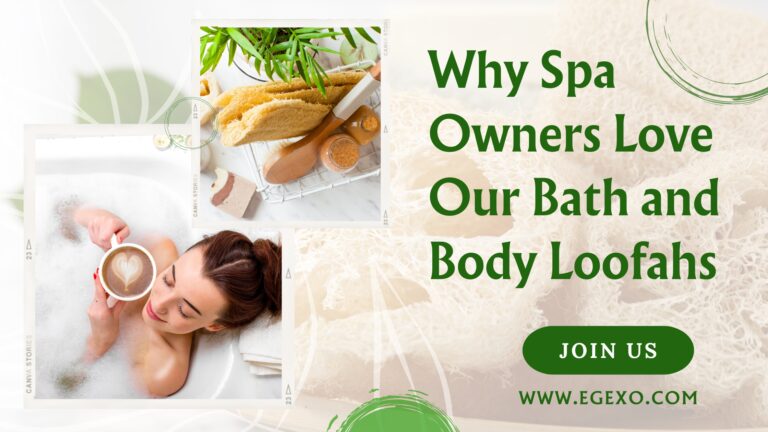Egyptian Loofah: Why the Nile Delta Produces the World’s Finest Natural Sponges
Picture yourself standing in a sprawling field near the Nile Delta, surrounded by climbing vines heavy with elongated gourds swaying in the Mediterranean breeze. This scene represents the beginning of something remarkable: the journey of Egyptian loofah from ancient agricultural tradition to modern sustainable product that’s transforming the natural cleaning and personal care industries worldwide.
The global demand for authentic Egyptian loofah has surged dramatically over the past five years, driven by consumers seeking genuine alternatives to synthetic sponges and businesses recognizing profitable opportunities in sustainable products. Whether you’re a retailer evaluating new product lines, a distributor seeking premium natural sponges, or an entrepreneur exploring business ideas, understanding what makes Egyptian loofah exceptional can fundamentally change your commercial trajectory.
This comprehensive guide explores the unique characteristics of Egyptian loofah, the agricultural and cultural factors that create unmatched quality, and how businesses worldwide are capitalizing on this ancient resource in modern markets.
What Makes Egyptian Loofah Different From Other Natural Sponges?
The distinction begins in the soil. The Nile Delta’s alluvial deposits contain mineral compositions that simply don’t exist elsewhere. Thousands of years of seasonal flooding created layers of nutrient-rich sediment that nourish luffa plants in ways that cannot be replicated in other regions. This geological advantage translates directly into fiber quality that sets Egyptian loofah apart.
I spoke with Ahmed, a third-generation loofah farmer outside Cairo, who explained something fascinating about Egyptian cultivation methods. His family plants luffa seeds in precise patterns that maximize sun exposure while allowing adequate air circulation. These techniques, passed down through generations, optimize plant health and fiber development in ways that modern agricultural science is only beginning to understand fully.
The climate plays an equally crucial role. Egypt’s growing regions experience temperature fluctuations between day and night that trigger stress responses in luffa plants. Rather than weakening the plant, this stress actually strengthens the fibrous network inside the gourd. The result is an exfoliating sponge with exceptional durability and texture that maintains its structure through months of daily use.
Fiber density represents perhaps the most measurable difference. Laboratory analysis shows Egyptian loofah contains 30 to 40 percent more fibers per cubic centimeter compared to varieties grown in Southeast Asia or Central America. This density creates superior water absorption, faster drying times, and resistance to bacterial growth that directly impacts product performance.
Why Does the Nile Delta Region Produce Superior Loofah Quality?
Understanding regional advantages requires looking beyond simple geography. The Nile Delta sits at a unique intersection of Mediterranean climate, African sun intensity, and water access that creates ideal conditions for luffa cultivation. No other loofah-growing region combines these factors in quite the same way.
Water quality matters more than most people realize. The Nile carries minerals from deep in the African continent, creating irrigation water with trace elements that influence plant development. While modern farming uses supplemental irrigation, the underlying water table still reflects this mineral-rich heritage. These micronutrients become incorporated into plant tissues, ultimately affecting the finished natural loofah characteristics.
Soil biology in the Delta region contains unique microbial populations that form symbiotic relationships with luffa plant roots. These microorganisms help the plant access nutrients more efficiently, promoting robust growth even in challenging conditions. Agricultural researchers have attempted to transplant these soil microbiomes to other regions with limited success, suggesting complex environmental interactions that remain incompletely understood.
The cultural knowledge embedded in Egyptian loofah farming cannot be understated. Farmers know instinctively when conditions favor planting, how weather patterns will affect growth cycles, and the precise moment when gourds reach optimal maturity for harvesting. This experiential wisdom accumulated over generations creates consistency that mechanical monitoring systems struggle to match.
Temperature patterns during the critical fiber development phase directly impact final product quality. Egyptian growing regions experience hot days that can exceed 35 degrees Celsius followed by nights that cool to 18-20 degrees. This diurnal temperature variation triggers cellular processes that strengthen fiber walls, creating the robust texture that makes Egyptian loofah the best choice for demanding applications.
How Does Egyptian Loofah Processing Differ From Other Regions?
The transformation from gourd to finished loofah sponge involves meticulous processing that separates premium products from inferior alternatives. Egyptian processors have refined techniques that maximize fiber integrity while ensuring thorough cleaning. The farm to export process maintained by professional suppliers demonstrates the attention to detail required for consistently excellent results.
Timing the harvest represents the first critical decision. Harvest too early and fibers remain insufficiently developed, creating weak sponges that deteriorate quickly. Wait too long and the gourd begins natural decomposition that damages fiber structure. Egyptian farmers identify optimal harvest timing through subtle visual cues in the gourd’s external appearance, knowledge that cannot be taught from textbooks alone.
The initial cleaning process removes the outer skin and internal seeds without damaging the delicate fiber network. Traditional methods involve soaking in flowing water for specific durations that vary based on gourd size and maturity. This natural cleaning process preserves fiber integrity better than aggressive mechanical processing, though it requires more time and expertise.
Multiple cleaning stages ensure thorough removal of plant material that could cause odors or rapid degradation. Professional operations wash loofahs repeatedly, checking each batch for cleanliness before moving to the next processing stage. This quality focus distinguishes premium Egyptian loofah from cheaper alternatives that skip crucial cleaning steps.
Drying techniques affect the final product’s color, texture, and longevity. Sun drying in Egypt’s low-humidity climate creates naturally light-colored loofahs with optimal fiber characteristics. Artificial drying methods used in more humid regions often require higher temperatures that can weaken fibers or create brittleness that reduces product lifespan.
What Business Opportunities Exist With Egyptian Loofah Products?
The versatility of authentic Egyptian loofah creates multiple market opportunities that smart entrepreneurs and established businesses leverage simultaneously. Understanding these applications helps identify the most profitable paths for your specific situation and target markets.
The bath and body segment remains the largest market, with steady growth driven by increasing consumer preference for natural personal care products. Spas, hotels, and wellness centers represent particularly attractive customers because they purchase consistently and accept premium pricing for quality products. Retail stores serving health-conscious consumers also demonstrate strong, repeat demand for natural exfoliating sponges.
A boutique owner in Melbourne shared her experience transitioning from synthetic bath sponges to Egyptian loofah. Within three months, the natural loofah category became her third-highest revenue generator despite representing just 5 percent of her shelf space. Customer feedback consistently praised the texture and durability, driving word-of-mouth recommendations that brought new customers specifically seeking the products.
Kitchen applications offer explosive growth potential as both commercial and residential markets seek sustainable alternatives to synthetic scrubbers. Kitchen loofah products excel at removing baked-on food and grease without scratching delicate surfaces. Restaurants increasingly prefer natural options that align with sustainable business practices and appeal to environmentally conscious diners.
The commercial kitchen segment alone represents substantial opportunity. A foodservice distributor in Toronto reported that once chefs discovered natural loofah’s effectiveness on stainless steel and cast iron, reorders became automatic. The products outlasted synthetic alternatives by significant margins, creating better value despite higher initial costs.
Pet grooming applications showcase Egyptian loofah’s versatility beyond traditional uses. Pet grooming products utilizing natural loofah provide gentle cleaning with simultaneous massage benefits that pets and owners appreciate. Professional groomers value the durability and hygienic properties, while pet owners love the natural composition free from synthetic chemicals.
Raw loofah scrubbers appeal to craft markets, artisan producers, and consumers who prefer customizing products for specific uses. Though smaller than other segments, this market typically accepts premium pricing and demonstrates strong loyalty once customers discover quality sources.
How Can Retailers and Distributors Verify Egyptian Loofah Authenticity?
Origin verification protects your business reputation and ensures customers receive the quality they expect. Unfortunately, market growth has attracted unscrupulous sellers misrepresenting inferior products as authentic Egyptian loofah. Developing verification skills safeguards your investment and brand integrity.
Fiber density provides the most reliable physical indicator. Authentic Egyptian loofah feels substantially denser than alternatives when dry. Squeeze the sponge firmly; genuine Egyptian products resist compression more than loofahs from other origins. This density translates directly to durability and performance that customers notice immediately.
Color consistency indicates proper processing and authentic origin. Egyptian loofah exhibits natural cream to light tan coloration with minimal variation within batches. Darker brown tones or significant color variation often suggest different origins or improper processing. Extremely white loofahs have typically undergone bleaching that damages fibers and reduces longevity.
The smell test reveals processing quality. Properly cleaned Egyptian loofah has minimal odor when dry and no musty smell when wet. Unpleasant odors indicate incomplete cleaning or mold development, both of which suggest compromised quality regardless of claimed origin.
Water absorption characteristics differ noticeably between authentic Egyptian loofah and alternatives. High-quality Egyptian products absorb water quickly while maintaining structure, then dry relatively fast due to efficient drainage through the dense fiber network. Inferior loofahs either absorb water slowly or become waterlogged and drain poorly.
Working with established suppliers who control their supply chain from farm to export provides the most reliable authenticity assurance. These operations maintain documentation about growing regions, processing methods, and quality standards that protect buyers from misrepresentation.
Request batch samples before placing large orders. Evaluate multiple pieces from each batch for consistency in size, color, fiber density, and cleanliness. Reputable suppliers welcome quality-focused customers because stringent standards protect the supplier’s market reputation.
What Should You Know About Sourcing Egyptian Loofah Wholesale?
Successful sourcing requires understanding more than simple pricing comparisons. The cheapest supplier rarely provides the best value when quality issues create customer complaints, returns, and damaged reputation. Smart wholesale purchasing balances cost with reliability, quality consistency, and supplier professionalism.
Minimum order quantities vary significantly between suppliers, typically ranging from 500 to 5,000 pieces depending on product type and customization level. Starting with smaller orders allows market testing before committing substantial capital. Many professional suppliers offer sample programs that facilitate evaluation without large financial commitments.
Lead times from Egyptian suppliers generally span 4 to 8 weeks depending on order complexity, current production schedules, and seasonal factors. The growing season influences availability, with immediate post-harvest periods offering the most abundant supply. Planning inventory requirements in advance prevents stockouts during peak demand periods.
Shipping logistics significantly impact total landed costs. Container shipping offers the best per-unit economics for large orders, while air freight suits smaller, time-sensitive shipments. Understanding incoterms and shipping options helps optimize costs based on your specific volume and urgency requirements.
Payment terms reflect supplier confidence and relationship maturity. New customers typically pay deposits before production with balance due before shipment. Established relationships often progress to more favorable terms that improve cash flow management. Whatever the terms, ensure clear written agreements prevent misunderstandings about payment timing and conditions.
Quality guarantees separate professional suppliers from marginal operations. Clear standards about acceptable fiber density, cleanliness, color, and sizing protect buyers from receiving substandard products. Review guarantee terms carefully, understanding the process for addressing quality issues if they occur.
Why Do Sustainability-Focused Consumers Prefer Egyptian Loofah?
The environmental advantages of natural loofah become increasingly important as plastic pollution dominates global consciousness. Consumers actively seek products that align with sustainability values, creating market opportunities for businesses offering genuine eco-friendly alternatives.
Complete biodegradability represents Egyptian loofah’s most compelling environmental credential. After months of use, spent loofahs decompose naturally in compost bins within 30 days, leaving no persistent residues. This contrasts sharply with synthetic sponges that persist in landfills for decades or break down into microplastics that contaminate water systems.
A study conducted by environmental researchers in Germany found that an average household using synthetic sponges contributes approximately 200 grams of microplastic pollution annually through normal cleaning activities. Switching to natural loofah eliminates this pollution source entirely, a fact that resonates powerfully with environmentally conscious consumers.
The cultivation process itself offers environmental benefits compared to petroleum-based synthetic production. Luffa plants actively sequester carbon during growth, produce oxygen, and improve soil health through organic matter contributions. While not carbon-negative considering processing and transportation, natural loofah’s environmental footprint measures substantially smaller than synthetic alternatives.
Water pollution concerns increasingly influence purchasing decisions. Synthetic sponges shed microplastic particles with every use, particles that wastewater treatment cannot effectively remove. These microplastics accumulate in aquatic ecosystems, entering food chains with consequences scientists continue researching. Natural loofah sheds no synthetic particles, making it genuinely ocean-safe and waterway-friendly.
Agricultural practices in Egyptian loofah production typically involve minimal synthetic pesticides or fertilizers compared to industrial agriculture. The hardy luffa plant tolerates varied conditions well, requiring less chemical intervention than many commercial crops. This natural resilience appeals to consumers seeking products with minimal environmental impact throughout their lifecycle.
How Can Businesses Build Brands Around Egyptian Loofah?
Simply selling Egyptian loofah as a commodity misses substantial value creation opportunities. Strategic branding that communicates authenticity, quality, and values creates differentiation that supports premium pricing and customer loyalty.
Private labeling services offer the fastest path to brand development without manufacturing complexity. This approach allows focus on marketing and customer relationships while experienced suppliers handle production logistics. Successful private labels develop distinctive packaging and brand stories that resonate with target demographics.
A wellness brand in California built her entire company around Egyptian loofah, creating a narrative about ancient beauty traditions meeting modern sustainability. Her packaging features historical information about Egyptian bathing practices and environmental impact data comparing natural versus synthetic sponges. This educational approach established authority and justified premium pricing that competitors couldn’t challenge on commodity grounds.
Product education creates value that strengthens customer relationships. Many consumers encounter natural loofah for the first time through retail purchases. Providing clear information about proper use, maintenance, and benefits increases satisfaction and reduces returns. Simple care instructions about rinsing thoroughly and air drying between uses dramatically extend product life.
Custom product design capabilities enable creation of unique offerings that competitors cannot easily replicate. Perhaps your market wants specific sizes, shapes, or presentations that standard products don’t address. Innovation in traditional categories captures attention and creates buzz that drives awareness and trial.
Storytelling about Egyptian agriculture and traditional processing methods creates emotional connections that transcend functional product benefits. Consumers increasingly value knowing where products originate and how they’re made. Transparency about supply chain processes builds trust and differentiates your brand from competitors offering vague origin claims.
What Common Mistakes Should You Avoid When Entering the Egyptian Loofah Market?
Learning from others’ experiences accelerates your success while avoiding costly errors. The Egyptian loofah market presents specific challenges that preparation and awareness can mitigate effectively.
Underestimating storage requirements represents a frequent oversight. Natural loofah needs dry, ventilated storage quite different from synthetic products. A distributor in Florida learned this lesson painfully when a shipment stored in a humid warehouse developed mold, rendering the entire inventory unsaleable. Climate-appropriate storage protects your investment and maintains product quality.
Neglecting customer education leads to unnecessary returns and dissatisfaction. First-time natural loofah users sometimes expect synthetic sponge characteristics, creating disappointment when the product behaves differently. Proactive education about natural variation, proper care, and realistic expectations prevents most issues before they develop.
Focusing exclusively on price without considering quality creates long-term problems that outweigh short-term savings. Extremely cheap Egyptian loofah often indicates questionable authenticity, poor processing, or compromised quality that generates customer complaints. These issues damage your reputation far more significantly than slightly higher costs would impact margins.
Ignoring seasonal availability affects inventory management and customer service. Loofah production follows agricultural cycles, with harvest periods offering abundant supply and pre-harvest periods showing tighter availability. Understanding these patterns helps optimize ordering timing and maintain adequate stock levels.
Skipping sample evaluation before large orders invites quality surprises that can be catastrophic. Always request and thoroughly evaluate samples that represent actual production batches. Reputable suppliers provide representative samples and welcome quality-focused buyers who protect the supplier’s market reputation.
Overlooking documentation requirements for import compliance creates expensive delays and complications. Different countries maintain varying regulations about natural product imports. Working with experienced suppliers familiar with destination country requirements streamlines customs clearance and prevents costly holdups.
Frequently Asked Questions About Egyptian Loofah
What makes Egyptian loofah superior to loofah from other countries?
Egyptian loofah benefits from unique growing conditions in the Nile Delta, including mineral-rich soil, optimal climate patterns with temperature variations that strengthen fibers, and generations of cultivation expertise. These factors create denser, more durable fibers with superior water absorption and longevity compared to loofahs grown elsewhere. Laboratory testing shows 30 to 40 percent higher fiber density in Egyptian varieties.
How long does authentic Egyptian loofah typically last with regular use?
Quality Egyptian loofah sponges last between 3 to 6 months with proper care and daily use. Longevity depends on maintenance practices like rinsing thoroughly after each use, allowing complete drying between uses, and periodic deep cleaning. The dense fiber structure of Egyptian loofah maintains integrity significantly longer than synthetic alternatives or lower-quality natural sponges.
Can Egyptian loofah be used for both bath and kitchen applications?
Absolutely. Egyptian loofah’s versatility makes it ideal for multiple applications. Bath and body use leverages its gentle exfoliating properties, while kitchen applications benefit from effective grease removal without surface scratching. Many businesses successfully market Egyptian loofah across multiple categories, though dedicated products for each use optimize hygiene and customer appeal.
What are the minimum order quantities for Egyptian loofah wholesale?
Minimum orders typically range from 500 to 5,000 pieces depending on the supplier, product type, and customization level. Standard products generally have lower minimums, while private labeling or custom designs require larger commitments. Many professional suppliers offer sample programs allowing quality evaluation before placing substantial orders.
How can I verify that loofah is genuinely from Egypt?
Authentic Egyptian loofah demonstrates characteristic density when squeezed, natural cream to light tan coloration, minimal odor, and superior water absorption with quick drying. Working with established suppliers who provide supply chain documentation and maintain transparent farming to export processes offers the most reliable authenticity assurance. Request batch samples and evaluate fiber quality before committing to large purchases.
What certifications should I look for in an Egyptian loofah supplier?
Seek suppliers with organic farming certifications, export compliance documentation, and quality management systems. These credentials indicate professional operations and reduce regulatory risks. Transparent information about cultivation practices, processing methods, and quality standards demonstrates supplier reliability and protects your business from quality issues.
Is Egyptian loofah truly biodegradable and environmentally friendly?
Yes, natural Egyptian loofah is completely biodegradable, decomposing in compost within 30 days without leaving persistent residues. Unlike synthetic sponges that shed microplastics and persist in landfills for decades, natural loofah offers genuine environmental benefits throughout its lifecycle. The cultivation process involves minimal synthetic inputs, and the product contains zero plastic or synthetic materials.
What profit margins can retailers expect with Egyptian loofah products?
Retail margins typically range from 100 to 300 percent depending on positioning, market conditions, and brand development. Premium natural products often command higher margins when marketed with strong brand narratives and sustainability messaging. Wholesale to retail margins generally run 50 to 100 percent, balancing volume with profitability.
How should Egyptian loofah be stored to maintain quality?
Store Egyptian loofah in dry, well-ventilated spaces away from moisture and humidity. Unlike synthetic products, natural loofah absorbs environmental moisture that can promote mold growth if storage conditions are inappropriate. Climate-controlled storage is particularly important in humid regions. Proper storage maintains product quality and protects inventory value.
Can Egyptian loofah be customized or private labeled?
Yes, professional suppliers offer extensive customization including size variations, packaging design, private labeling, and even product shapes for specific applications. Custom development typically requires larger minimum orders than standard products, but creates differentiation that supports premium positioning and brand building. Work with suppliers experienced in custom projects to ensure successful outcomes.
What is the best way to clean and maintain Egyptian loofah for longevity?
Rinse thoroughly after each use to remove soap residue and debris. Allow complete air drying between uses by hanging or placing in well-ventilated areas. Perform deep cleaning weekly by soaking in vinegar solution or boiling briefly to eliminate bacteria and refresh fibers. Replace every 3 to 6 months depending on usage frequency and wear indicators.
Why is Egyptian loofah considered the best choice for sensitive skin?
The dense, uniform fiber structure of Egyptian loofah provides gentle exfoliation without excessive abrasiveness that can irritate sensitive skin. Natural composition free from synthetic chemicals, dyes, or processing additives reduces allergic reaction risks. When wet, Egyptian loofah softens appropriately while maintaining enough texture for effective dead skin removal without causing redness or discomfort.
Taking Action in the Egyptian Loofah Market
The opportunity surrounding authentic Egyptian loofah continues expanding as consumer preferences shift decisively toward natural, sustainable products. Businesses that position themselves strategically in this growth market can capture substantial value while contributing to positive environmental outcomes.
Success begins with partnering with reliable suppliers who maintain transparent operations from cultivation through export. Examine their quality standards carefully and request samples that represent actual production batches. This due diligence protects your reputation and ensures customers receive the exceptional quality that Egyptian loofah promises.
Consider how your unique market position and capabilities align with different opportunities. Perhaps established retail relationships provide immediate distribution channels, or maybe direct-to-consumer marketing represents your strength. The most successful Egyptian loofah businesses leverage existing advantages while systematically developing complementary capabilities.
Explore the comprehensive range of possibilities through detailed product catalogs that showcase applications across bath and body, kitchen, pet grooming, and raw materials categories. Understanding available options helps identify the most promising paths for your specific situation and target markets.
Whether you’re an established distributor expanding product lines or an entrepreneur launching your first venture, Egyptian loofah offers proven pathways to profitable business growth. The combination of superior product characteristics, growing consumer demand, and sustainability credentials creates favorable conditions for market entry and expansion.
Ready to explore how authentic Egyptian loofah can transform your product offerings? Request detailed information about wholesale opportunities or contact experienced suppliers directly to discuss your specific requirements. The natural sponge revolution is accelerating, and early positioning captures the most attractive opportunities in this dynamic market.
The ancient Nile Delta continues providing resources that meet modern needs in ways that synthetic alternatives simply cannot match. Egyptian loofah represents more than just a product; it embodies sustainable commerce that benefits consumers, businesses, and the environment simultaneously.

